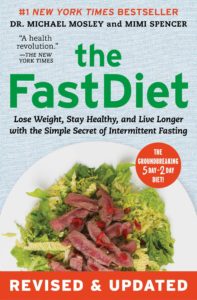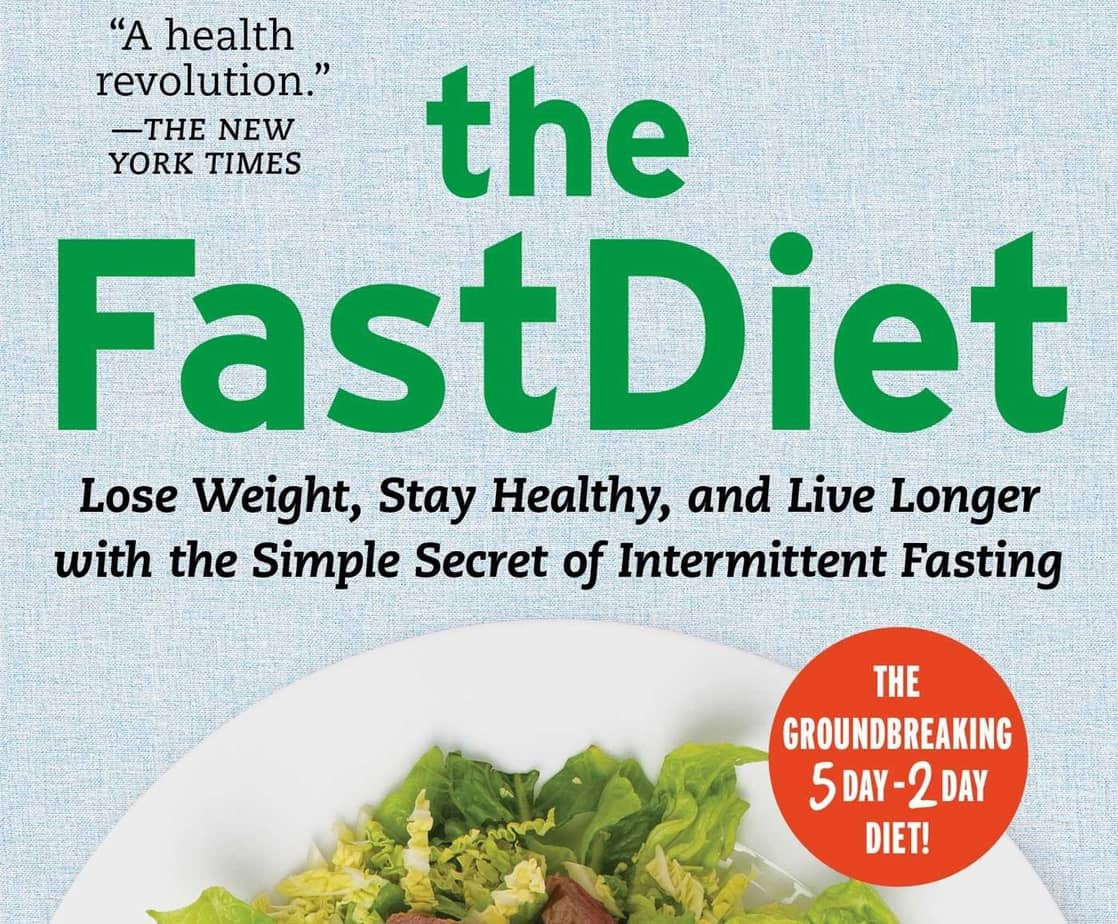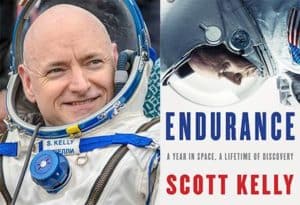 I first heard about IF in the workplace. A colleague had dropped a significant amount of weight in less than a year, and I was intrigued. When this colleague told me about IF, I was dubious, but, results speak for themselves. Still, I hesitated. Going hours without eating… could I do that? I was just embarking upon a short trip to Sandwich (ha, ha) in September of this year, and while there I visited the Sandwich Library (of course). As I was entering, I saw that they were having an annual book sale. For some reason, the thought went through my mind, “If Intermittent Fasting (IF) is for me, I will find a book for $1.00 on it.” Impossible, right? Not so. I discovered The FastDiet (updated in 2015) by Dr. Michael Mosely and Mimi Spencer. In this particular book, the authors acknowledge the benefits of fasting, but did not want to live a permanently restrictive lifestyle; thus the 5:2 Diet was born… fasting 2 days (eating only 500 calories) and eating normally the other 5. I tried this, but like many others, I found eating 500 calories on the 2 days too difficult. I seemed to be too focused on food and hunger- exactly the opposite of what I wanted. I wanted to find out more about the many other IF options available. My colleague directed me to Dr. Jason Fung and his landmark book, The Obesity Code (2016).
I first heard about IF in the workplace. A colleague had dropped a significant amount of weight in less than a year, and I was intrigued. When this colleague told me about IF, I was dubious, but, results speak for themselves. Still, I hesitated. Going hours without eating… could I do that? I was just embarking upon a short trip to Sandwich (ha, ha) in September of this year, and while there I visited the Sandwich Library (of course). As I was entering, I saw that they were having an annual book sale. For some reason, the thought went through my mind, “If Intermittent Fasting (IF) is for me, I will find a book for $1.00 on it.” Impossible, right? Not so. I discovered The FastDiet (updated in 2015) by Dr. Michael Mosely and Mimi Spencer. In this particular book, the authors acknowledge the benefits of fasting, but did not want to live a permanently restrictive lifestyle; thus the 5:2 Diet was born… fasting 2 days (eating only 500 calories) and eating normally the other 5. I tried this, but like many others, I found eating 500 calories on the 2 days too difficult. I seemed to be too focused on food and hunger- exactly the opposite of what I wanted. I wanted to find out more about the many other IF options available. My colleague directed me to Dr. Jason Fung and his landmark book, The Obesity Code (2016).
Dr. Fung recommends fasting completely on the fasting days- what is called a “clean fast.” This means you drink only black tea and coffee, and consume only plain seltzer, mineral water, etc. I have found, in my short experience, that this is much easier to do than to have only 500 calories on a fast day. This book outlines the ins and outs of a fasting lifestyle, including all the possible benefits. Not only will one reach a healthy weight and maintain it, but you can also expect to have more energy, feel physically better, and stave off any number of age-related diseases (including pre-diabetes and Type 2 diabetes), and IF sharpens your senses and your brain. Dr. Fung explains how the body is more like a thermostat than a scale, and that it is actually certain hormones that dictate a person’s set point weight, and whether they lose or gain weight. Dr. Fung’s main point is that our bodies’ ability to lose (or gain) weight has a lot to do with insulin levels- he quotes it at 75%. Over time, the body becomes “insulin-resistant,” meaning that it takes more insulin to digest foods. Dr. Fung’s solution? Intermittent Fasting, or IF. During a fast, insulin levels drop and eventually our bodies begin to digest stored fat. (This is an extremely simplified version!) Over time, intermittent fasting allows our bodies to “eat” up extra stored fat, and we lose weight. Benefits: no starving, not complicated, no calorie counting, enjoy foods you love most of the time, sustainable; not to mention the benefits of less inflammation, which is a side effect of many diseases and conditions.
After finishing this book, I found a much shorter, simpler book dedicated to IF: Gin Stephens’ Delay Don’t Deny (2017). This book was a true layman’s dream. I learned all about IF, and Gin made the science behind it very readable. I also found Gin’s podcast, Intermittent Fasting Stories and was hooked. I have since listened to 55 episodes, and have “caught up” with the real time podcast. The stories are fascinating, relatable and inspiring, to say the least!
I officially began on November 11th. It has been about 2 months and I am already experiencing some of the benefits. Though I haven’t weighed myself (I’ve always had a hate/hate relationship with the scale), I have gone down one pants size, which is incredible, since I have been eating all the things I love during my “eating window,” including sweets! I also have always been an emotional eater; this began when I was 6 years old and remember having some M & M’s shoved at me as I was told about the passing of my beloved “Pampa.” I remember the tears streaming down my face as I ate them, enjoying the sweet taste of the candy, but missing him already. Though I experienced another great loss this past October with the death of my mum (I called her “Mumsky”), I was determined to give IF a solid try. It has been so helpful with the emotional part of eating. I have been forced to face my feelings and let everything hurt, like it does, like it will, like it should, as I come to terms with losing her. Mum was only 70 years old but suffered from a host of health issues, including Type 2 Diabetes and COPD. Witnessing her last weeks in the hospital and in the nursing home influenced my decision to try IF.
Having been a dieter for over 40 years, I am always on the lookout for “the next best thing.” However, as I read (and listen to) more about IF, and as I try it myself, I can see it as a lasting lifestyle, not a diet to be put aside during the holidays or special occasions. Intermittent Fasting is not just the latest diet for those seeking a permanent weight loss solution. Intermittent Fasting is a complete change of mindset toward food and nutrition, and is backed up by science.
I look forward to reporting on my progress in a future article. Look for “IF: Intermittent Fasting, The Last Best Thing” Part Two!
Carla Howard is the Senior Circulation and Media & Marketing Assistant at the Morrill Memorial Library in Norwood, MA. Look for her article in the January 23, 2020 issue of the Transcript and Bulletin.




